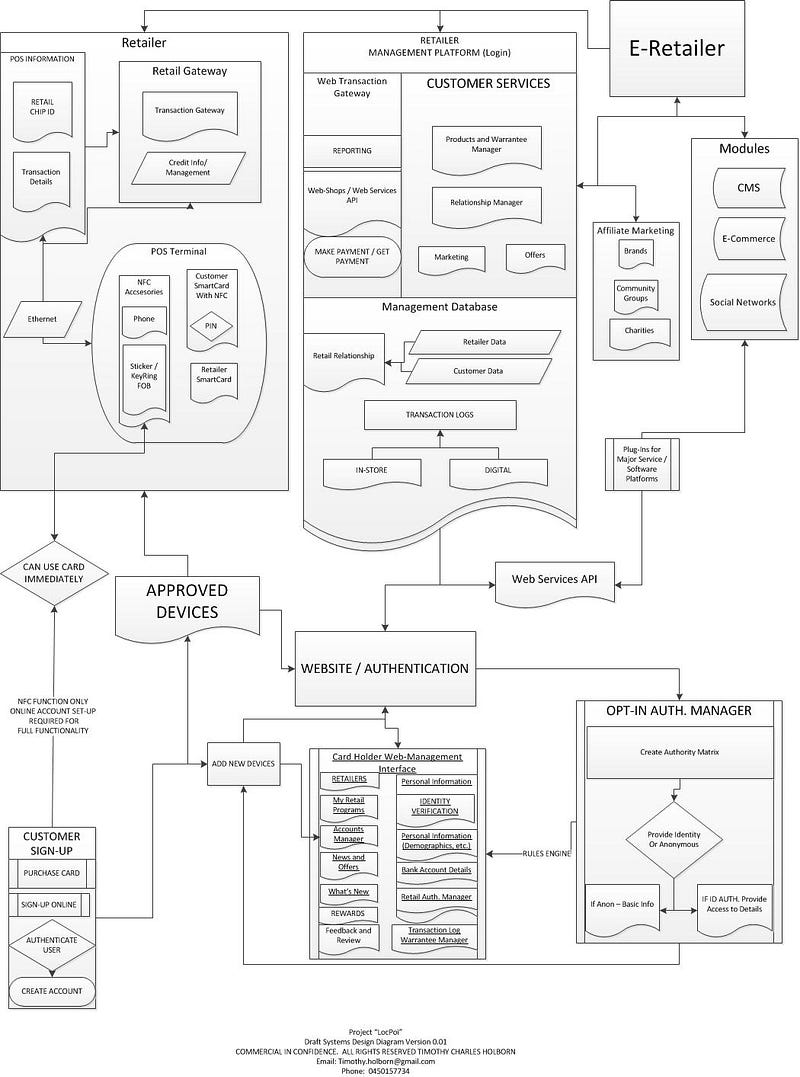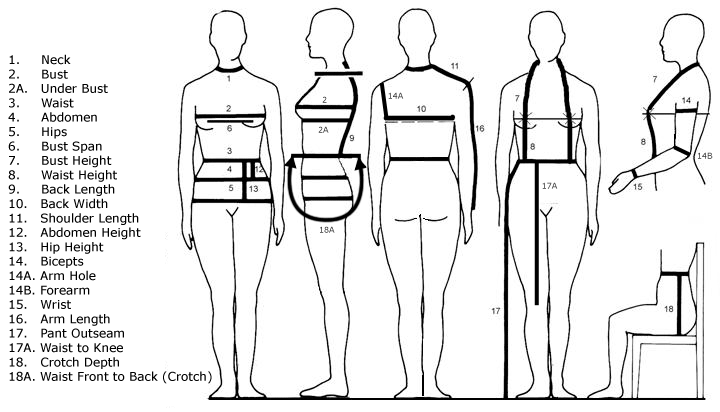Small to Medium Business, WebPayments & Knowledge Banking
Democratising AI marketing, online sales and payment services online can help stimulate economy in an array of positive ways.
Whilst many of my articles seek to articulate the benefits for individuals, this article illustrates solutions for ‘small to medium’ businesses, as part of the broader ecosystem solutions, framework.
Works on these sorts of use-cases extend back to 2010 and in some cases long before then, whilst continually developed since. The hard bit, about a ‘knowledge banking’ system is about how to support the needs of individuals; but should this be accomplished, it would be wrong to suggest that these systems are, not good for business. In anyway.
There are many forms of small to medium businesses. From the many different form of shop based retailers; through to service providers. in all cases, from tradespeople to personal services, apparel, electronics, transport, travel & almost any other vendor situation, data services enrich opportunity.
E-Commerce platforms today often provide opportunities for specific market problems, although they generally do so in a manner that has been designed to make it easier to start using their solution, than it is to move to something else; and, most-often acts to obtain a proportion of the transaction revenue.
Today, there are many ‘traditional’ solutions, ranging from shopify to uber, airbnb to ebay; the emerging market for people engage in business online has already become well developed.
What the proposed ‘knowledge banking’ frameworks in-turn attempt to do, is to extend the way traditional businesses are able to operate independent to these broader ‘silo’ based solutions, by way of providing ‘web of data’ tooling.

The “LocPoi” Diagram from 2012 describes some of the functional characteristics that are now able be supported via W3C standards works done since then….
It is hoped that businesses will not only benefit, but also make use of these solutions as to provide digital, machine-readable receipts to their customers.
Most businesses today operate some sort of business & stock management platform, to support the operational needs of their business. In some cases, many of these solutions are developed by industry specific software providers, whilst in others — more generic tools are used, and online platforms make use of prominent web content management systems (CMS) to support online needs.
Online CMSs include Wordpress, Drupal, Joomla alongside others.
Whilst some of these CMS projects are proprietary and hosted solutions, many others are built by the ‘open source software’ community. These online software environments build upon collaborative works undertaken by many across the world, to produce software infrastructure that can be modified for use for the purposes of specific websites / end-users.
Traditional website solutions often already use semantic web tools, without (necessarily) knowing it. Two of the most commonly used semantic web tools are the services that support the means for a website to easily publish web-content into facebook alongside ‘web of data’ services to enable search-engine discovery of web-content and related business information. Yet the use of these tools does not go far enough, as to best support small businesses
If the web is built in a manner that provides improved support for payments and electronic contracts, the means to develop and deliver new services that need not have anything to do with other 3rd party solutions, is brought about.
To achieve a solution that’s able to extend a businesses self-managed footprint to the online space and/or interactively with it; which is expected to
- drop the cost of online sales
- improve the use of online sales infrastructure to get more sales
- improve customer relationship management
- improve support for multi-vendor transactions (ie: retailer + delivery)
- provide support advanced AI compatible Retail Receipts for customers
- Improve product / service — consumer labelling opportunities
- Improve support for supply-chain engagement (ie: see a film at a cinema, get a copy of film-related promotional material)
- Improve the means to provide valued services, without breaching privacy.
The means to do so incorporates the need to address a few object parts;
namely,
- Fulfilling Payments
One of the first parts that are needed to make it work, is a payments framework. There is no point creating a sales opportunity, if the means to fulfil the transaction for both parties, isn’t possible.
So, without getting too far into the payment processes, lets just say — there’s tools for that, and the knowledge banking infrastructure is designed to improve support for those underlying requirements.
Indeed, existing banks have an array of tools available to help with this today. Whilst there are issues with the way they provide these tools, the ability to solve the payment issue from a business perspective, is relatively easy.
2. Customer Relationships & Trust
The customer relationship constituents, such as customer loyalty solutions, promotions and similar; alongside the means to support the growth of trust, which has a direct relationship to whether and how people make transactions online; in particular, with small business, is part of the building blocks required to provide an alternative from the traditional, global alternatives.
3. Web of Data: forming electronic tools to curate commercial offers online
One of the reasons why apps for takeaway food have developed such an enormous commercial footprint is that these platforms publish the offerings made by businesses offering take-away food. This is in addition to the underlying curation of ‘gig workers’ who deliver the food (transport workers).
So, What sort of things can be achieved?
The first part of a solution is about how existing tools are able to be extended as to support this proposed ‘knowledge banking’ enabled approach.
The first part relies upon the ability for a businesses banking environment itself, to support these AI empowered ‘knowledge banking’ services on behalf of its business customers. This in-turn assists them, in improving trust factors.
This is envisaged to be an extension of already existing e-commerce services.
The second part, is in forming the means for existing platform tools, but those operating within businesses (ie: Point of Sale Systems) and their online sites, to both become interoperable, so sales that come via online systems do so in a manner that’s supported by the point of sales system and relating systems.
Do achieve this, ontologies need to be employed as to support ‘web of data’ related frameworks that are in-turn used by the (AI) Agents of all other actors.
For example;
Protege, a leading open-source application for building ontologies, provides a pizza ontology example. This can in-turn be used to illustrate the constituents of a pizza, whether it be the consumer who seeks to ‘design their own’ pizza, or whether it be standard offerings made by a pizza store.
Where this becomes more interesting; is when the broader field of semantic inferences can be made; as to relate the nutritional needs of a consumer, and the options made available by a retailer.
Therein, there are two fields of consideration that are interactive in nature; the means to support the needs of ‘consumers’ and those of businesses.
Private Consumer Information
Assume the consumer is operating their own inforg, and in it, they’re collecting an array of information that relates to their health and wellbeing.
This would in-turn include an array of information about their diet, which could be collected in connection to the products they’ve consumed alongside information about the recipes used for things they’ve made themselves.
A retail app that is intended to support the purchase of take-away food is an inappropriate informatics environment to store all of this data; but the use of it, can make a meaningful influence on purchasing behaviour.
Therein / thereafter; such transactions may not simply be for one person, but rather a group. Again — the retail or app provider should not reasonably have the right to obtain the commercial use of any such behavioural analytics data.
So, if we imagine there’s this place where consumers have a means to privately go through their own decision making practices.
Then, go out and seek an offer from a suitable provider (ie: pizza = local) and find what’s on offer that fits their needs.
They may use better produce than alternative providers in the local area, and these decisions may in-turn support people in the community and their dietary needs better than cheaper or more well-known alternative providers.
They may make a specific effort to seek their ingredients from sustainable food production providers; so animal products, are from well treated animals.
Back to business
From the pizza store point of view, they may have a large mass of customers who trust them and offer an array of reviews and social-peer level support that assists that business, in its means to attract new customers.
The ability to use ontological approaches means customers, whether they’re in the area for a short-time, perhaps visiting friends; or live there, can in-turn be supported by the technical means to communicate products in a standard way. Where this is applied to pizzas, its about the ingredients and how its made.
I want a BBQ Chicken Pizza, +++BBQ Sauce, no chicken. said one customer, many years ago. whilst my personal fav. was the in-house ‘souvlaki pizza’, not on the menu.
So, the benefit of using ontologies (which in-turn relate to the concept of permissive commons) is that these schemas not only provide a structured manner for a retailer (and their system) to quickly and easily make use of existing information / datasets, that relates to what it is they sell; but it’s also able to be linked across their supply chain, and based upon the permissions set-out by their businesses online systems; consumers are able to make use of it in so many ways, it would be entirely inappropriate and too complex for any small to medium business to program any system that did it all themselves.
The additional benefits then include the means to easily provide machine-readable receipts, which can in-turn link across to supplemental information about the product or produce as is made available by others; and, the means to use AI or moreover, semantic inferencing, to support the little differences.
Therein; a decision is being made to produce tools that are intended to support consumers, which in-turn support new opportunities for businesses.
A few other examples are thereafter provided.
Clothing measurements


Whether it be the ability to figure out whether a fabric will change after it is washed, whether it is suitable for a person with allergies; or the means to find attire that’ll fit yourself, or others. The means to articulate head, body and feet measurements can not only help with online purchases, and any purchases for another person; the tooling to do so is also instrumental for the creation of new businesses that may specialise in the manufacture of custom fit attire.
It is often now the case that it is cheaper to find clothes to donate to homeless people online, than is the case if they went to a second-hand shop that markets its purpose as to support the needs of such people.
Travel
The vast majority of travel websites provide a listing of accommodation providers, given a star rating based on what it is they provide. More broadly, in the vast majority of country towns, cities and suburbs across the world; there are alternatives to a wonderful concierge or holiday resort provider.
This is in-turn coupled with the needs of many business, particularly small businesses in country suburbs. Therein, as AirBnB so well illustrates, there are many different accommodation options available in all sorts of places around the world. What is more difficult to identify at present, on the web, is the multitude of local providers whose livings, their means to support their families, often relies upon their means to provide valued services to travellers.
Whether it be finding the local cinema, or someone to take you horse riding or fishing; there are often people in these places more than happy to do so.
For events, such as weddings (first investigated ~2006–7) there are then very complex scenarios that make the task of getting a good pizza order, comparatively simple. The means to identify caterers, venues and the means to form and support group deals; alongside activities, and travel experience opportunities that both suit the needs of patrons & provide new experiences.
The means to support the needs of international visitors who may be more easily served through means to support international language services.
The means for small businesses of many types to have these underlying data-services that support the means for their websites to easily communicate with other online services in a common, AI enabled, way; helps to foster the means for others to curate requests for sales opportunities; from the means to organise events or enjoy a travel experience,
Through to the means to remember that antique they may have found, and array for it to be purchased and shipped back-home upon their return.
Loyalty & relationship based marketing & feeding the homeless
There is an ability for these systems to build customer relationships between sellers and consumers; it’s frankly, that simple.
The means to do so, provides a capacity for the consumer to select how they want to interact with that vendor, whether they want to get constant notifications — or not; and,
The vendor can in-turn make use of those data-services as part of broader marketing campaigns and related systems, in a permissive format.
One of the more specific considerations that has been made over sometime, is that people today carry less cash. As such, those in need are now increasingly served solely by often ineffective / inefficient institutional services; and related gatekeepers.
There are many reasons why this is a backwards step.
In my experience, those who are in-need more often than not, do actually have special needs that are not being met. It is all good and well to sustain their ability to stay in a life (for so long as they sustain life) in or of poverty, but it’s quite another thing to form the means to address underlying issues as to provide such people the means to heal, and get on with life.
All too often, the underlying reason for their circumstance, is made to be impossible for them to address; and so, an abuse cycle commences, incurring the means for others to garnish an income to support those who are homeless which can escalate & manifest problems.
So, imagine if there was a means for people who self-identify, in a dignity preserving manner, to be a person in-need; and that the systems, on that basis, provide a facility for those who seek to be charitable, to provide support by way of food, or help fund the means for a person to see a lawyer, or doctor
Imagine if, there was a means to form social projects that benefited the environment in some way, and also acted to distribute job opportunities to those in need more directly; rather than funding recruitment businesses first.
The economic ecosystems brought about by these ontologically powered frameworks provide a capacity to produce distinguished economic solutions; ranging from providing repeat customers a discount, to providing means through which charitable funds can be used to discount (or co-fund) the cost of particular ‘things of need’ to those living below the poverty line, and in-turn also — the means for a person to go have a conversation with a person living on the street. Then after doing so, be able to communicate kindness..
Be able to have a economic means with businesses, that might mean a business seeks a tax-benefit for doing critical services, like accountancy, law and health on a discounted basis for a % of their time; and that the gap, be funded by the public who engage themselves and provide funds for specified purposes. In this way, we can better feed, provide shelter, defend the human rights of those who are otherwise left to be used by others as a threat to illustrate what happens to people who don’t comply to wrongdoing by others.
In a happier sense,
There is a means to support better evaluation practices that in-turn act to better support the discovery of small businesses in addition to providing the means to inspect and engage with alot more knowledge in relation to that business; as to improve decision making practices by and for consumers.
Whether it be the means to figure out if that cheaper TV, is actually cheaper in the end; as may be evaluated by understanding energy usage & life span info..
or, the ability to inspect the supply-chain of a bag a peas or berries, to see not only where the products come-from; but whether workers, are treated well.
There is a means to articulate the supply of services, with happy customers; that can help better understand the provenance of economic activities as does relate to particular employees / individuals who have been involved.
So how is it done?
The vast majority of POS systems have a capacity to be transformed / updated, as to support the particular tooling required, based on SemWeb.
This can in-turn provide support for the development of plugins for the vast majority of website solutions; that can in-turn support online discovery & sales.
Better yet, as these systems are built upon the premise that consumers already have a place to both safely & securely store and operate their own data; the issues relating to data-privacy and any breach / attack on small business websites, can broadly be made a problem that goes away; and the consequence of how the problem is responded to, leads to far more powerful capabilities as a result; for consumers, vendors and supply chains.
These solutions provide a means for vendors to better engage with trusted suppliers as to produce and provide offerings, that are valued by the market.